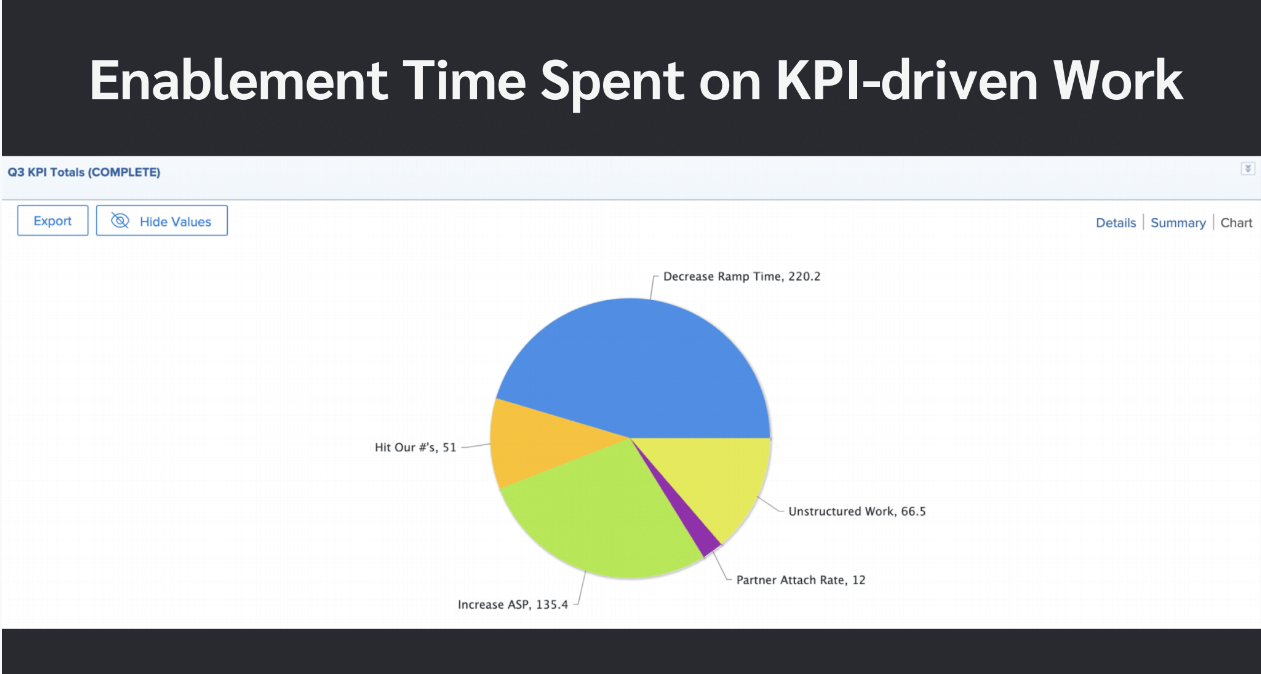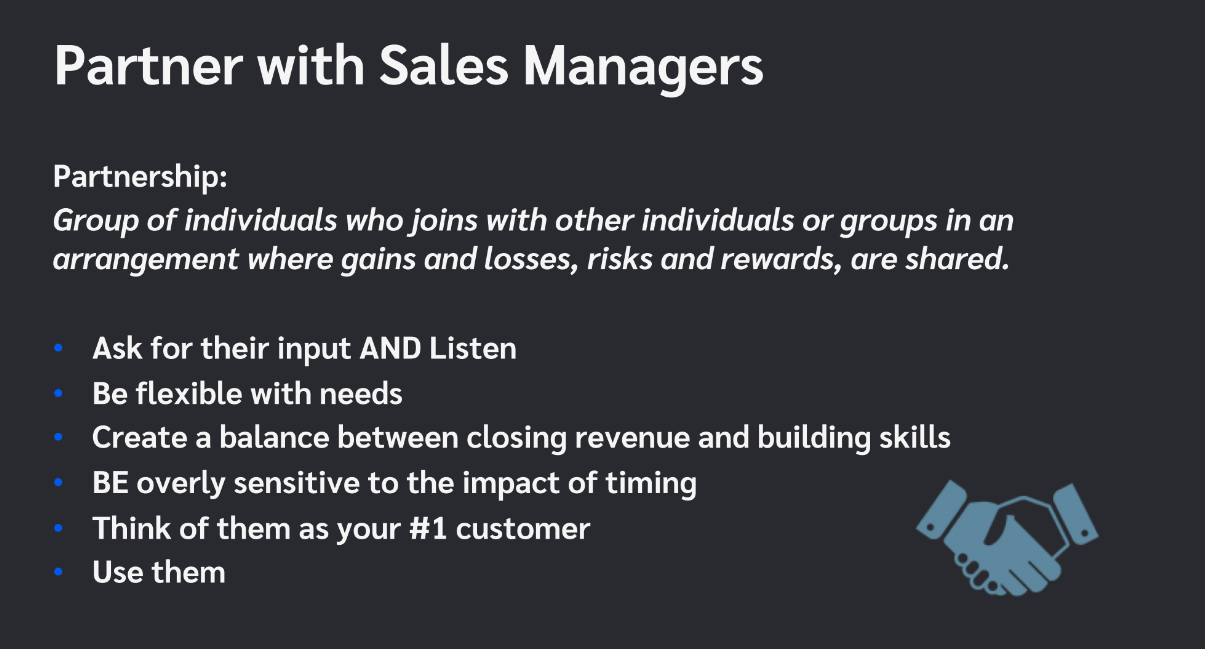Speaking at the Sales Enablement Summit in San Francisco, Nick Salas explained the significant impact bringing each department together through aligning the metrics of the business had on his team at Workfront.
Nick took us through the process of partnering enablement with other departments.
Let's take a look at how he did it.
Mapping
"We mapped out what all of our initiatives were that we were being tracked to, then decided how we could align our goals and our individual activities to these KPIs."

"How much time within a given quarter are we dedicating to decreasing ramp time? What type of projects? What type of training? What type of enablement are we doing that's specific to help that KPI? We continue to iterate this project over time."
"Being able to partner with the sales managers is key to all this. Being able to track the KPIs back doesn't hold any weight unless the sales managers have bought into those KPIs."
Being able to partner with sales managers directly had the biggest impact on our team
"Being able to interview them one on one, ask them in a group setting ‘where are you guys falling short?’ Is it a certain product? What type of enablement do we need to do to help up level the knowledge of our sales reps with those certain things?"
"One of the most interesting things that we've seen is our whole goal, obviously, is to help sales get better at what they do and to help them hit their quota. But a lot of times we get resistance, which is a funny dichotomy because our whole goal to help them make their numbers!"
"The secret to that is this as being able to partner with them. Ask for what they need and be flexible with their needs."

Balance
"Then of course, there is the balance between closing revenue and building skills. Our EVP of sales is really bought into enablement, which makes a huge impact."
"His mantra is that if you're not closing business and you're not building your pipeline, you need to be focused on developing your skills. The more he says that, the more it helps us gain that credibility with the sales leaders."
Timing is huge
"It can feel like everybody in the business wants to do enablement. We get people from other departments all the time talking about how 'we need to train sales on this, sales needs to be trained on that.'"
"We act as the gatekeepers of their time. When sales leaders see that we're being sensitive to that, it helps build that credibility as well."
Perspective
"Thinking of them as our customer has really helped us. Being able to use them in enablement has given them a true voice."
"We also do a newsletter and one of our goals is to get leaders to talk to the rest of the field about the impact that a certain training had."
"Put a quote together around it. Tell us why it made such an impact. Let's hear from you, the leader, not from us in enablement, because we already think our stuff is awesome. It doesn't matter unless the leaders are brought in as well."
Separating enablement and enforcement
"I've taken compliance completely out of my vocab when talking to sales reps and sales managers, because we don't want them to get hung up on 'is my team compliant?'"
"The objectives that we're trying to push here are that the training is compelling and interesting and relevant enough to help them close revenue."
"As opposed to us talking about ‘you’re 89% compliant, what's going on with your team?’"
"Because that makes us seem more like an enforcement arm as opposed to an enablement arm."
"Being able to really separate those two has been key for us in gaining executive alignment."
"Sales reps don't like to be told what to do outside of their leadership. If we were to come to them and enforce these things upon them, it's just gonna fall upon deaf ears. It needs to come from leadership."
"We want the engagement and we want the participation, but we can't force it."
Coaching and advising
"Being a trusted coach is really important. We get sales reps passing by our desks all day long, asking us one off questions, but , every once in a while a rep will come and sit down for 20 to 30 minutes and, and just vent to us about , where they feel like they're falling short."
"These are things that sometimes they don't feel comfortable talking to their leaders about. So, we have a really good opportunity to take a lot of their individual feedback and build it into some of the programs and an enablement that we try to focus on."
"Partnering with the leaders is important but also, being connected with the reps, building relationships are effective ways of building that executive alignment."
"Sales people don't like to be on lists. We have one particular sales manager in general who loves to be praised and loves to be recognized as most salespeople do. But he hates being on that list."
"When we do our newsletter, we recognize some of the top performing teams and we do a leader board. His goal is to constantly be on the leader board. I'm hoping his goal is to be up there because he's really invested in those reps learning and development, but that's just that's my hope."
This article is adapted from Nick's speech at the SES San Francisco. Nick is Senior Manager, Sales Enablement at Workfront.
